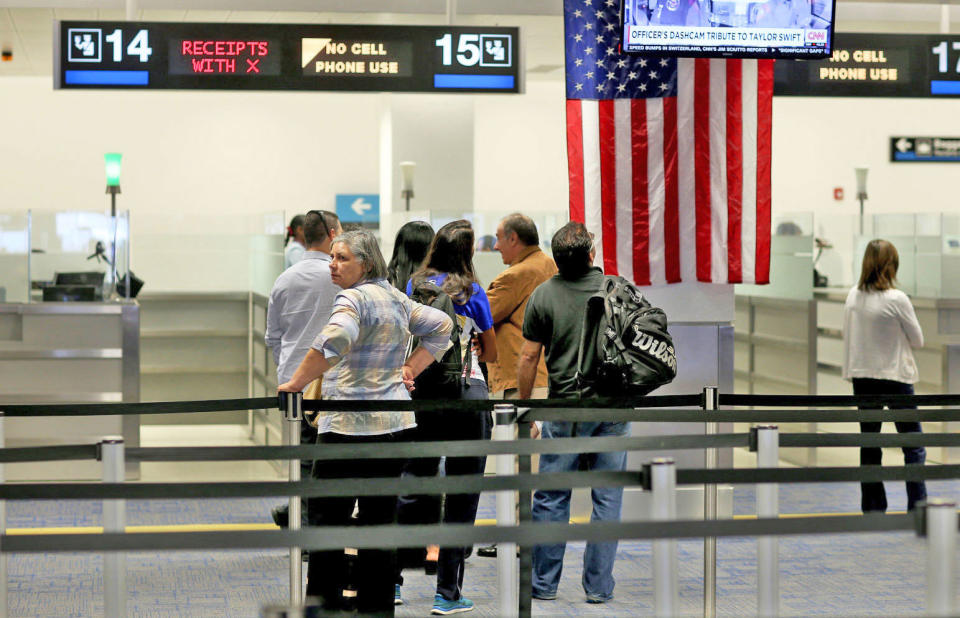EFF says border control needs a warrant to search your tech
The number of warrantless device searches has more than doubled under Trump.
The Electronic Frontier Foundation (EFF) has submitted a court filing arguing that federal agents at international airports should obtain a warrant before snooping through passenger laptops, phones and other digital devices. Warrantless border searches are currently permissible under an exception to the Fourth Amendment, but as EFF notes, the number of these searches has more than doubled since President Trump moved into the White House.
In a new court filing, EFF argues that since digital devices hold so much highly personal information, "agents should be required to show they have probable cause to believe that the device contains evidence of a violation of the immigration or customs laws", and even then border agents should only be able to examine digital contents after a judge has signed off on a warrant.
The filing also sought to clarify search guidance issued by the US Customs and Border Protection Agency in July, which restricted border searches to locally-stored data. As EFF points out, distinguishing between local data and cloud-based data isn't necessarily straightforward, and cloud data can "appear as a seamless part of the digital device when presented at the border".
EFF filed its brief with the US Court of Appeals for the Fifth Circuit in US v. Molina-Isidoro, a case that saw Maria Isabel Molina-Isidoro's cell phone manually searched at the border and the data used to support a prosecution for attempted drugs smuggling.
"Our cell phones and laptops provide access to an unprecedented amount of detailed, private information, often going back many months or years, from emails to our co-workers to photos of our loved ones and lists of our closest contacts," said EFF staff attorney Sophia Cope. "This is light years beyond the minimal information generally contained in other kinds of personal items we might carry in our suitcases. It's time for courts and the government to acknowledge that examining the contents of a digital device is highly intrusive, and Fourth Amendment protections should be strong, even at the border."


